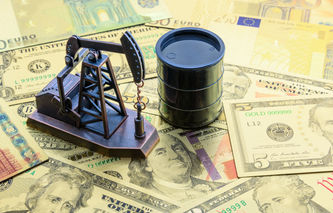Definition
The term devaluation refers to the reduction in the value of a currency relative to the currency of another country. Devaluation typically occurs through an official announcement and the process is a tool governments can use to control monetary policy.
Explanation
Countries that have a currency with a fixed rate of exchange relative to the currency of another country can adjust the rate of exchange through the process of devaluation. This is accomplished through the formal announcement of a new fixed rate of exchange. Central banks maintain these fixed ratios by standing ready to exchange their currency with the foreign country's currency at the expressed rate.
When devaluation occurs, the domestic currency is less valuable relative to the foreign currency. That is to say, it takes more domestic currency to have the same buying power in terms of the foreign currency. A related concept is that of inflation and deflation, whereby the purchasing power of a given currency can decline relative to the currency of another nation.
Devaluation is a tool governments can use to control monetary policy and deal with trade imbalances. Since foreign currency has more purchasing power following devaluation, exports to that country also become less expensive, thereby helping to correct a trade imbalance. An increase in demand for exports also helps to increase the revenues of domestic producers.







